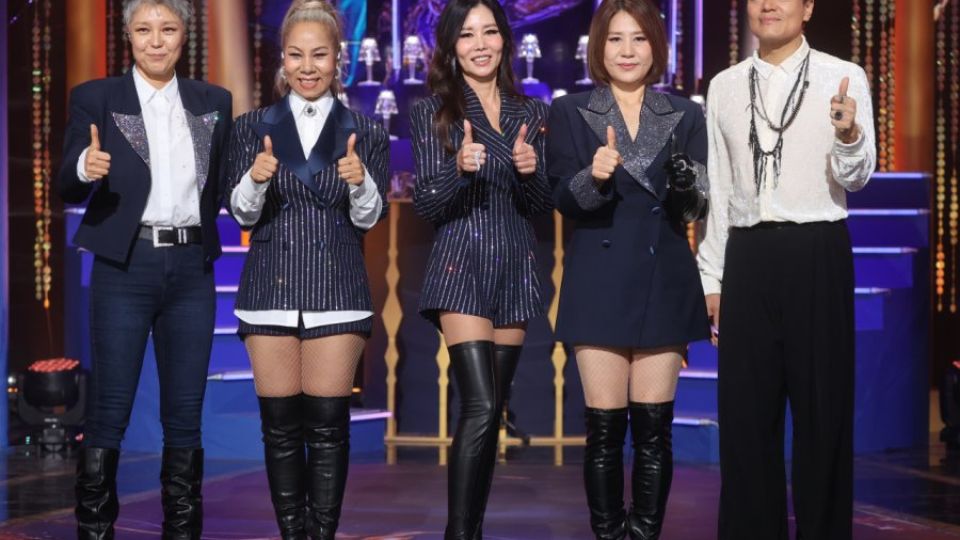December 18, 2023
SEOUL – “Golden Girls” – an entertainment show that features the journey of four legendary female singers from the ’80s and ’90s to transform into a trendy girl group – was a fresh adventure in the Korean music industry.
The singers’ challenge recorded a 5 percent viewership just after the second episode — the highest among entertainment programs that KBS has aired on Friday night so far this year. The guerrilla concert held at Coex in southern Seoul on Dec. 5 drew hundreds of audience members, proving the show’s popularity. Park Jin-young, the producer of the group and also known as J.Y. Park, expressed his high hopes during an episode, saying, “(Golden Girls) might at least win a rookie of the year award at the end of the year.”
However, the response to the group’s debut song “One Last Time” was quite muted compared to the show’s popularity. While it made it on to the Hot 100 chart on Melon — the largest South Korean music chart, right after its release on Dec. 1 — it didn’t stay long.
Aside from the public’s reaction to the group as “new and fresh,” some viewers questioned the necessity of the industry veterans becoming an idol group. Some have said it looked awkward for them to wear hot pink outfits, follow sexy choreography, and learn how to act like contemporary girl group members.
“Why as a girl group?’ That was the first impression I got from the show,” said Lee Ye-in, who has watched “Golden Girls” from the very first episode, mainly because of her mother who adores ’80s music.
“I don’t know much about ’80s and ’90s music, but my mother talked a lot about what they meant to the Korean music industry, so I know that no one can question the vocal skills and astonishing careers (the four singers) have established. But that was why I felt awkward about them trying to squeeze them into a girl group mold,” said Lee.
Although the producer J.Y. Park explained that he is not trying to turn the singers into a typical idol group, the program’s overall concept is about them adapting to contemporary idol culture.
Park introduces this current-day culture to the singers, saying it is crucial to attract young listeners beyond the older generation. As part of this endeavor, the Golden Girls participate in dance challenges. They also perform at guerrilla concerts and appear on music shows mostly watched by young students.
“It was fun watching them strive to break free from their old-school image, but it halved their charisma,” said Lee. “I enjoy their voices and music, but I prefer it when they perform in their own style.”
“I didn’t understand the lyrics and rhythms of K-pop, but in (the four singers’) voices, it was surprisingly good,” said Kim Seong-soo, a father in his 60s whose daughter loves K-pop. “I believe they can fully compete with other popular singers with their own style and songs.”
Kim said watching the four singers’ struggle to act young was entertaining, fulfilling the duty of an entertainment show, but added that it also felt sad. “They are all legendary singers, but they threw out everything they have established to fit into unpredictable trends.”
Like Kim, who had mixed feelings while watching the Golden Girls’ journey, many viewers said the show was more about the singers’ life stories than the music.
“I became a big fan of the Golden Girls, but not mainly because of their music. I think that their human struggle played a key role,” said Kim, a housewife in her 50s. “Young people may not know, but we older generations know that (the four singers) do not have to throw themselves into such challenging situations, allowing much younger people to judge them. Their courage was the most inspiring thing in the show.”
“My parents love the show, so I had to watch it together with them every Friday. I wasn’t interested at first, but I realized the Golden Girls were all at a similar age as my parents, or even older. It is astonishing how they still stay agile,” said Yim Seo-ah, a 24-year-old college student.


